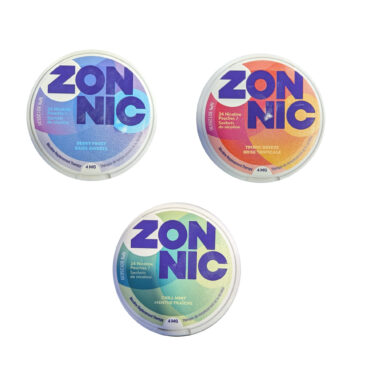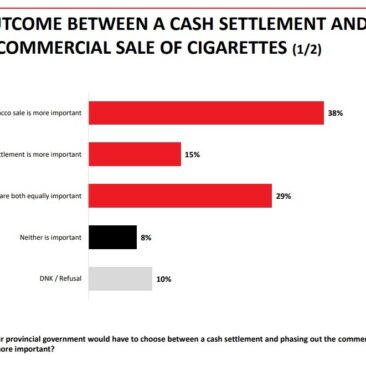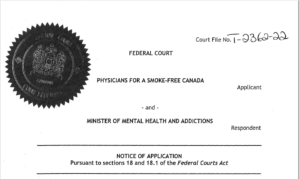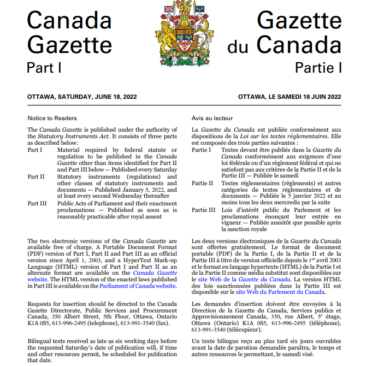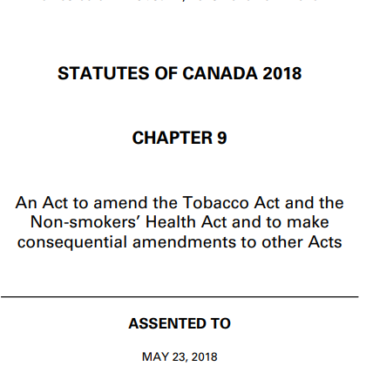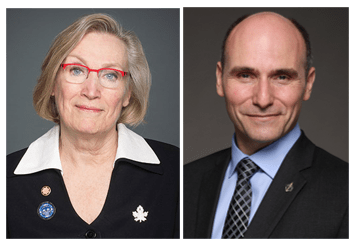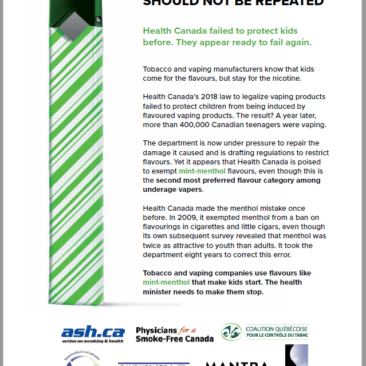Action on Smoking & Health (Alberta),
Coalition québécoise pour le contrôle du tabac,
Ontario Campaign for Action on Tobacco,
Physicians for a Smoke-Free Canada
Health groups are demanding that Health Canada crack down on the recent explosion of lifestyle advertising of e-cigarettes on television, social media and other settings. They are calling for stricter proper enforcement of the current law, and for the urgent development of regulations to ensure Canadian children are protected from all advertising for e-cigarettes.
The Tobacco and Vaping Products Act (TVPA), new legislation to restrict the promotion and sale of vaping devices, was given Royal Assent on May 23. Many sections of the bill came into force immediately (including an explicit ban on lifestyle promotions for vaping products) while others came into force yesterday.
During the parliamentary study of Bill S-5 these groups repeatedly cautioned that the legalization of the vaping market would trigger multinational tobacco companies to enter the Canadian market and that these companies would use aggressive marketing to recruit customers. These concerns were echoed by some parliamentarians who unsuccessfully called for amendments to the legislation to tighten restrictions on promotions. Now, only a few months later, their fears have materialized: slick, edgy, glamourous e-cigarette promotions have popped up across the country.
Health Canada’s failure to take enforcement action against Imperial Tobacco’s television campaign for its Vype brand is seen as a critical and dangerous moment for public health. The ad, which has been aired since late summer, was the subject of a formal complaint to Health Canada. No efforts by the government to remove the ads or to penalize the company have been observed.
“Imperial Tobacco is running roughshod over the new law” said Neil Collishaw, research director for Physicians for a Smoke-free Canada (PSC). “Decades of experience with tobacco companies has shown us that legislation is only as strong as the regulator’s resolve to enforce it. If Imperial Tobacco is allowed to get away with this blatant violation, we are almost certain to see other e-cigarette manufacturers do likewise. The impact on young people will be severe.”
Even before the legalization of vaping products, Health Canada’s Canadian Student Tobacco and Drug Survey (CSTADS) found that teen vaping increased by 65 percent in the two years leading up to 2017, even doubling in some provinces.
“Even before they were targeted by Imperial Tobacco, Juul and other nicotine companies, one in ten Canadian high school students had vaped in the past month,” said Les Hagen, Executive Director of Action on Smoking & Health. “These children face a real risk of a lifelong addiction and an increased risk that they will become cigarette smokers. New research shows that kids who vape are up to four times more likely to use cigarettes.”
The placid attitude and permissive actions of Health Canada contrast with recent moves of the U.S. Food and Drug Administration to step up protective efforts in response to the popularity of youth-friendly products such as JUUL. “We are very concerned about the launch of JUUL in Canada and the absence of regulations to strictly regulate its marketing,” said Flory Doucas, co-director of the Quebec Coalition for Tobacco Control. “This ‘stealth’ vaping device is designed for surreptitious use and is apparently engineered to deliver a more powerful nicotine hit.”
Ms. Doucas pointed to Health Canada’s statement on youth vaping last week as an example of the gap between the FDA and the Canadian regulator. “The FDA is funding research on youth vaping, is responding to new evidence, is talking tough and is taking action. By contrast, Health Canada is keeping a low profile and is using its public comments to minimize concerns about the impact of nicotine marketing on our children.”
The authority to regulate tobacco and nicotine is one shared by provincial and federal governments. While some provinces have adopted stricter regulations on nicotine advertising, others have not. The groups are calling on Health Canada to ensure that Canadian children in all regions are equally protected.
“In Ontario, we had hoped that Health Canada’s vaping regulations would help neutralize the Ford government’s recent approval of unrestricted vaping promotion in convenience stores and gas bars,” said Michael Perley, Executive Director of the Ontario Campaign for Action on Tobacco. “Without a federal crackdown on promotion that can be seen by kids lifestyle ads for Imperial Tobacco’s Vype and similar products, the department will be supporting Ontario’s permissive approach to promotion – which in turn places our kids in greater danger of nicotine addiction and, ultimately, cigarette smoking.”
“It’s been almost 50 years since tobacco companies advertised on Canadian television” said Les Hagen. “Yet this year they have been invited back. Health Canada needs to end this outrageous reality episode of ‘Madmen’ before thousands more youth take up vaping and increase their risk of becoming smokers. It’s one thing to help smokers by making less harmful products available, it’s another to allow the promotion of highly addictive devices to kids”.
Examples of lifestyle ads foun on Vype Canada Facebook:
 |
 |

